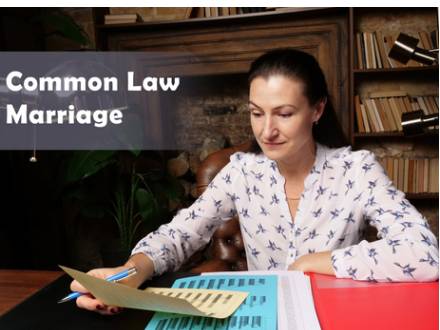Is My Texas Common-Law Marriage Valid in Illinois?
 Although nine states currently recognize common-law marriage, Illinois is not one of them. What happens, then, when a couple with a recognized common-law marriage in another state – like Texas – moves to Illinois? Is the common-law marriage recognized? What if the couple wants to divorce? Broadly speaking, a common-law marriage is not considered a "real" marriage in the state of Illinois.
Although nine states currently recognize common-law marriage, Illinois is not one of them. What happens, then, when a couple with a recognized common-law marriage in another state – like Texas – moves to Illinois? Is the common-law marriage recognized? What if the couple wants to divorce? Broadly speaking, a common-law marriage is not considered a "real" marriage in the state of Illinois.
That being said, technically speaking, Illinois law does recognize a common-law marriage from another state. In practice, however, there appears to be a large body of evidence that speaks to the contrary, which means it can be very challenging to prove a common-law marriage in a state that does not recognize that type of marriage.
The tricky part of this equation might be proving that you did, in fact, have a valid common-law marriage in Texas or another state that recognizes common-law marriages. If you are facing a similar situation, speaking to a knowledgeable Will County, IL family law attorney can help you determine where you stand in this situation.
What Constitutes a Common-Law Marriage in Texas?
There are essentially four elements that must be present for a common-law marriage to be valid:
- You must live together. Usually, the longer a couple has lived together, the stronger the case for common-law marriage.
- Both parties must have the legal right to marry – i.e., you are not married to anyone else, you are of legal age, and you are mentally competent.
- Both parties must have the intent to be married. If only one spouse considers the relationship a marriage, it is not a common-law marriage.
- Both parties must present themselves as a married couple to others. This could include referring to each other as "husband" and "wife," taking the same last name, and sharing finances with joint bank accounts, credit cards, or mortgages.
Although common-law marriages have existed for more than 100 years, they are relatively rare today.
How Does Illinois View a Common-Law Marriage from Another State?
Common-law marriages are not recognized in Illinois, as the state requires a marriage license. Illinois requires unmarried couples who want legal rights regarding property division to enter into a cohabitation agreement. This contract between two consenting adults establishes how property and finances will be distributed if the couple splits up. It is worth noting that the enforcement of cohabitation agreements in the state has been spotty at best.
Further, a cohabitation agreement does not address the allocation of parental responsibilities or child support. Even though Illinois, in theory, does recognize a common-law marriage from another state, it can be difficult to prove such a relationship existed in the other state, especially if one spouse denies that a common-law marriage existed. Absent a written agreement, a case like this could be reduced to hearsay rather than facts.
Illinois has no automatic legal protections for those with a common-law marriage from another state. With no legal precedent, the state of Illinois could not prevent one partner from kicking the other out of the family residence strictly on the basis of a common-law marriage unless both names were listed on the mortgage or lease.
Contact a DuPage County, IL Divorce Attorney
The situation can be extremely complex if you have a common-law marriage from another state, now live in Illinois, and want to divorce your common-law spouse. Speak to an experienced Naperville, IL divorce lawyer from Law Office of Ronald L. Hendrix, P.C. to discuss the specifics of your situation and determine what you need to do going forward. Attorney Hendrix holds a master’s degree in guidance and counseling in addition to his law degree and is a court-appointed mediator. Call 630-355-7776 to schedule your free consultation.

















